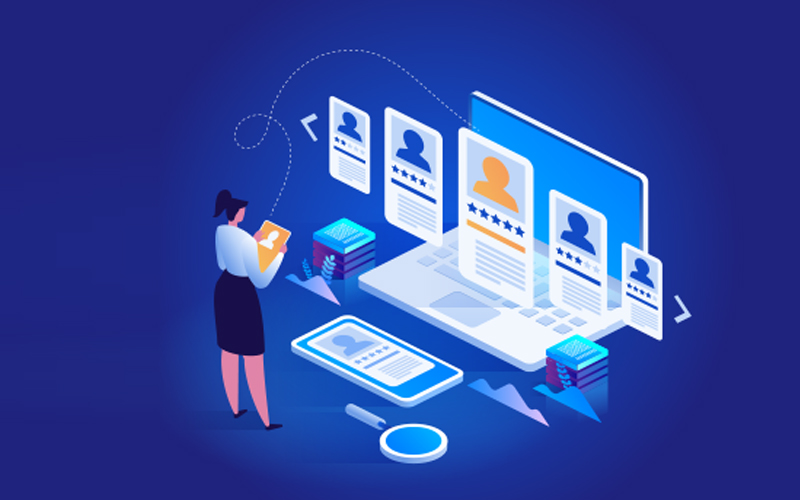Healthcare
Healthcare data platform capabilities needed to stay competitive
As with many other industries, digitisation of the healthcare ecosystem continues apace – in fact, it has particularly accelerated after the pandemic of 2020-21. A healthcare data platform is an essential component of this digitization endeavour for healthcare organisations. A healthcare enterprise data platform (EDP) is a central repository that automatically collects, securely stores, and provides easy access to the variety of data and information that flows through the ecosystem. It could contain data warehouses, online transaction processing (OLTP) databases and a data lake. It may expose multiple interfaces and have integration points with billers, healthcare providers, insurers, government, and regulatory bodies, among others.
What then, are the key capabilities of such a data platform: features that are needed for healthcare organisations (medical centres, research institutes, medical information and insurance providers, hospital chains and others) to provide world-class healthcare, optimise costs, and stay competitive in this digital era?
Let us examine some of these key capabilities.
First, it is essential to have a data platform that can handle domain-specific data as it relates to the healthcare industry – this means, the ability to comprehend and integrate CPT codes, John Hopkins ACG, LOINC, SNOMED CT, benchmarking data, and more. The platform must be capable of mapping the requisite terminology and curated data models into the collected raw data. Data will also flow into the system from multiple sources such as partners and vendor organisations. The tools necessary to make sense of the data are essential.
Next, when planning a data platform, healthcare business leaders must account for ongoing integration costs. The technology debt that may be incurred when scaling data platforms can be huge - it may entail migrating from local database management systems (DBMS) to big data, requiring investments in engineering, development and deployment skill sets. Improper integration can result in half-baked orchestration - the ability of the parts of the system to work harmoniously with each other so that the whole works capably. True orchestration is vital to extract usable information from the data platform.
The other enablers of platform usability include access to patient engagement tools, business reports, decision support dashboards, point-of-care integration, and similar workflows that ensure that the platform gets embedded into the day-to-day business of the healthcare organisation. Such integration ensures that the data and information flowing through the platform are relevant, up-to-date, and usable. The best data platforms are those that are deeply integrated into the ecosystem internally, as well as with partner organisations, stakeholders, and vendors.
Such integration requires enormous leadership and business will to make it happen. Business leaders may be motivated to start the data platform integration journey with systems that impact the bottom line such as cost management and revenue cycle management tools. The platform may then be extended to tech-enabled managed services such as diagnostics and patient management. Data platforms can help healthcare organisations meet compliance requirements, including assessing, monitoring, and evolving as per the latest security and HIPAA-compliance protocols.
Maintenance of electronic health records (EHRs) are an essential part of healthcare data platforms. The underlying capabilities of the platform must include such starting points as a master patient index, and provider attribution for EHR maintenance to happen.
A data platform can also be the starting point towards a move to build Health Information Exchanges (HIE) that is gathering momentum in many countries: a HIE allows all participants in the healthcare system, including patients, to securely share a patient’s medical information. HIEs can improve the speed and efficiency of healthcare access to patients, while driving down costs.
Another area where data platform capabilities can provide vital support is clinical research. Population health management and clinical trial management can help clinical researchers define, track and report the outcomes of groups of patients via improved care coordination and patient engagement during clinical trials and studies. The data platform can also offer relevant financial and care models to support such research initiatives.
A well-planned and deployed data platform may also include clinical quality management systems, tracking and reporting quality metrics from diagnostics to therapy and beyond. Such features will help the platform providers move into analytics and forecasting - leveraging tools such as AI/ML to provide accurate predictions, business intelligence and augmented visualisation of critical data. Such enhanced views can help healthcare decision makers interpret data consistently, keeping patient safety as the foremost parameter.
* For organizations on the digital transformation journey, agility is key in responding to a rapidly changing technology and business landscape. Now more than ever, it is crucial to deliver and exceed on organizational expectations with a robust digital mindset backed by innovation. Enabling businesses to sense, learn, respond, and evolve like a living organism, will be imperative for business excellence going forward. A comprehensive, yet modular suite of services is doing exactly that. Equipping organizations with intuitive decision-making automatically at scale, actionable insights based on real-time solutions, anytime/anywhere experience, and in-depth data visibility across functions leading to hyper-productivity, Live Enterprise is building connected organizations that are innovating collaboratively for the future.






